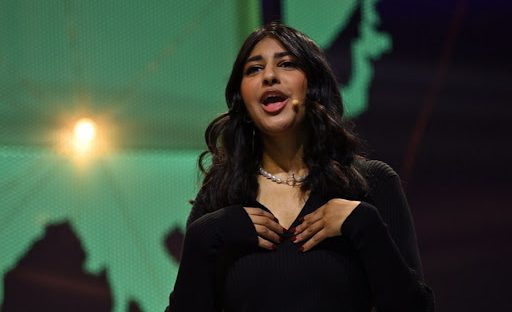Riya Mehta is a global healthcare activist, and a woman working in the political science and social justice field. Here, she discusses her work and encourages others to speak up and be an activist in any way, shape or form.
Being part of the South Asian minority and a woman in the political science and social justice field, has drastically shifted my interpretation of how to execute projects as well as research that would inspire younger women who are in these male-dominated fields. So far, only a mere 36% of women around the world constitute political bodies of government locally. Even more shocking, only 25% of women are involved in parliamentary systems, meaning that equality in this area won’t be accomplished till 2063. At the age of 16, I started working in a world renowned paediatric hospital called SickKids. It was at that time that I noticed the growing gender disparity in health politics, and the lack of women who are solving these pressing issues. From there, I chose to amplify my voice and make an impact through my words, which could hopefully convince someone else to push for global change. My campaign work with UN Women USA reached the attention of over 50 policy makers across the world and 100s of citizens as my published articles/newsletters about threats to civil rights and social justice reform during the Trump presidency.
I discovered a hidden passion for political journalism, working within the marketing and programming committee to discuss disaster relief, safety for women across cities in America and creating social media content to empower youth to take action. I wished to expand my influence to a global audience, and make others aware of the impact of colonisation leaving behind an unstable structure for countries to grow from. In January of 2022, I joined UNIDO working under their youth research council to develop a guidebook on making youth aware of the problems facing the international community. Much of my work since the new year has been focused on my identity as a woman of colour and removing stereotypes and stigmas of nations alike.
I noticed that despite my interests being different to each other, they were all intersected at one point and that was powerful in itself.
I noticed that despite my interests being different to each other, they were all intersected at one point and that was powerful in itself. For example, wanting to deliver more efficient healthcare policies in developing countries directly coincided with the growing lack of resources for pregnant women and maternal mortality rates. One of the most important things I realised was my success in these areas can be like my interests; multidimensional. In the past, I’ve worked at the Institute for Economics and Peace, conducting research into the Taliban takeover in Afghanistan and what it means for the political economy in the Middle East. I’ve been an associate with them for 2 years now, and have learned so much about peace treaties, how it impacts the economies of developing countries and trends in international relations. Through that research, I’ve been more adept at learning about how war and civil conflict affects women and children specifically, and the impact on stay at home mothers in an emerging economy.
My research made me feel as if I was actually making a change, and my identity as a minority in politics super-powered that effort, so the next step was naturally speaking up about my work in front of hundreds of people right? Well, there is definitely more backstory to this, I’ve spoken at dozens of conferences around the world (Web Summit, UN Women, Evoke by IBM and SXSW) on topics from female representation in the workplace to leveraging technology for social change. I get a lot of questions about the confidence and strength it takes to discuss sensitive topics about female inclusion in political sciences on a huge stage, and as the years went by, that stage became my second home. It was an outlet for me to both vent my frustrations on the lack of diversity, but offer up solutions to the problems I speak about and have people take them seriously.
My pathway, while unconventional, has shaped a person that enjoys being on stage and sharing a story that has a long way to go, but feels confident in inspiring others to speak up and be an activist in any way, shape or form.

